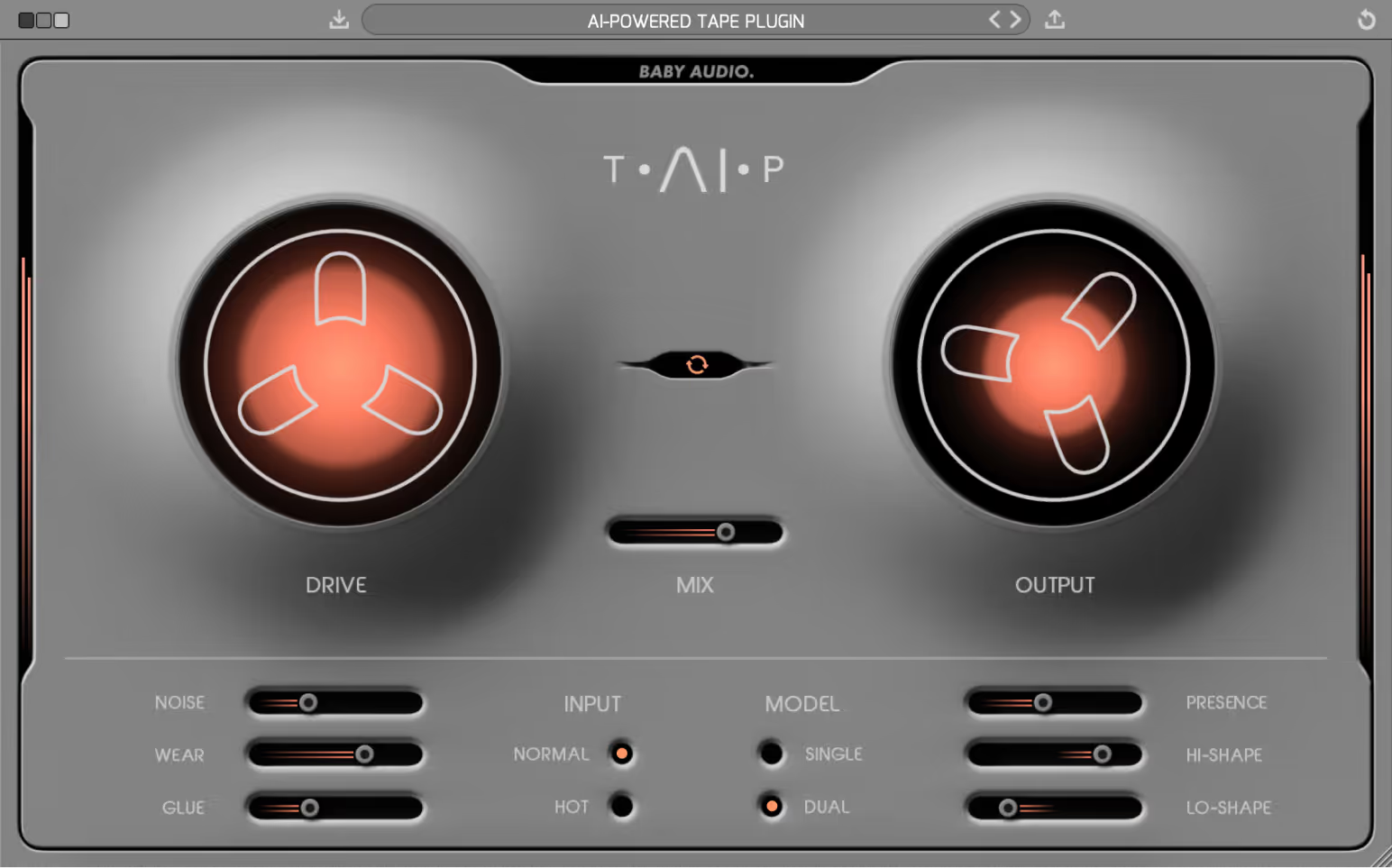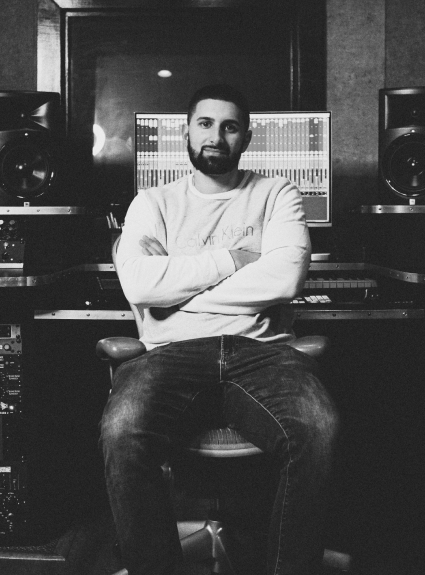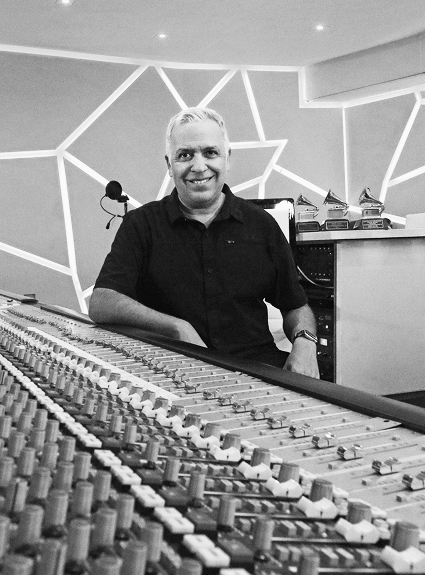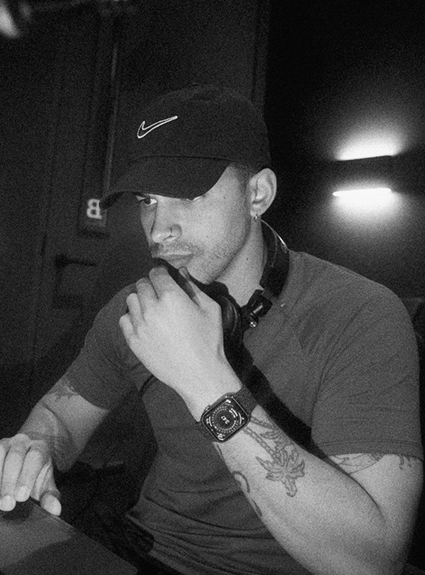Add 3 products to the cart and get the cheapest for free at checkout.







AI-modeled tape plugin
We used machine learning to faithfully model the sound and non-linear behaviors of a classic 1970s tape machine. We then deconstructed these characteristics into separate features that can be combined in new ways to create custom tape flavors.
Sounds exactly like the reel thing
Tape recordings have a natural thickness and glue to their sound that digital mixes often lack. TAIP brings you these characteristics without sonic compromises, utilizing AI for the most reliable tape emulation to date*.
Unless you want to maintain a 600-pound hardware device in your studio, TAIP brings you the closest you can get to the reel thing.
* Our AI model is ethically developed and trained on generic material such as sine sweeps and white noise.
Go beyond ordinary tape
TAIP allows you to go beyond what is normally possible with tape emulation plugins.
Drive it hard for saturation and distortion effects. Exaggerate the 'glue' behavior to turn TAIP into a de-facto compressor. Add wear, noise, and warble for lo-fi effects. Or get a more hi-fi sound with the low and high preservation filters.
We made TAIP flexible enough that you can dial in any tape flavor for any need and use the plugin creatively.
Professionally curated presets
TAIP comes with 135 presets to instantly warm up your digital recordings. Preset creators include:
✱ Mark Needham (Fleetwood Mac, The Killers, Bloc Party, Elton John)
✱ Max Jaeger (Major Lazer, Big Sean, Ariana Grande)
✱ Eestbound (Young Thug, Travis Scott, Jazz Cartier)
✱ Rob Kleiner (Sia, James Blake, Billie Eilish, Britney Spears, David Guetta)
✱ Cesar Sogbe (Prince, David Byrne, Jennifer Lopez)
Explore the features

More details
✱ Plugin formats: VST, VST3, AU, AAX (64-bit).
✱ Platforms supported: macOS 10.11 and up (including native Apple Silicon M-Chip Compatibility). PC Windows 10 and newer.
✱ DAWs supported: All major DAWs, including Ableton Live, Pro Tools, Logic Pro, FL Studio, Cubase, Studio One, Bitwig, Reaper, Reason, etc.
Download a free trial of TAIP here.
For a hardware emulation project like TAIP, AI offers a more faithful approach than the traditional DSP method. Where a normal DSP emulation would entail guesstimating the effect of various analog components and their mutual dependencies, we can use AI/neural networks to accurately decipher the sonic characteristics that make a tape machine sound and behave in the way it does. This happens by feeding an algorithm various training data* and teaching it to identify the exact characteristics of the hardware.
The result is an emulation that accurately captures all the quirks and nuances of analog tape without guesses or approximations.
* No unlicensed (third-party) audio content was studied or copied to develop TAIP. The training data consisted of white noise, sine sweeps, and similar sources developed entirely in-house.
TAIP
AI-Powered Tape Saturator
Buy TAIP
- One time purchase to own TAIP forever
Popular
Subscribe to own in 6 months
- Full access to all Baby Audio and Denise Audio products
- Choose any plugin to own forever every 6 months (including TAIP)
- Cancel any time and keep the plugins you collected
- Get first month for $0.99 with code "COLLECT"
* Legal Disclaimer: TAIP was developed by Baby Audio using artificial intelligence technologies and neural networks in order to learn from and emulate the characteristics of certain hardware products (specifically tape machines). No unlicensed (third-party) audio content was studied or copied to develop TAIP.











